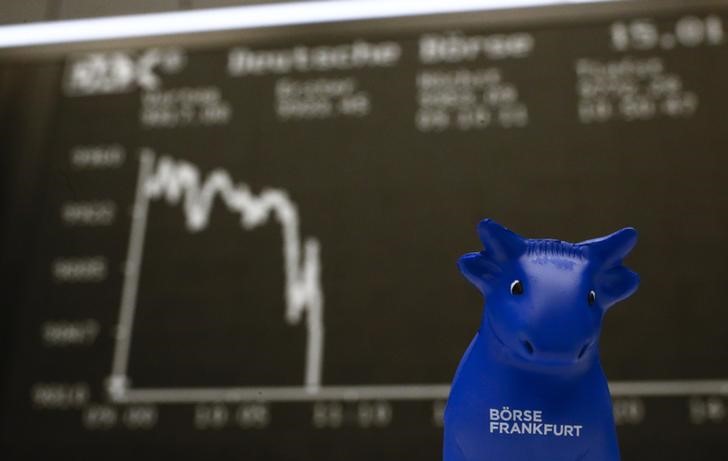Bitcoin price today: steadies after record high over $126k amid "Uptober" optimism
Investing.com - European equity indices traded lower Friday, adding to the previous session’s weakness as the sweeping U.S. trade tariffs raised concerns of a global trade war and a severe drop in economic activity.
At 04:35 ET (08:35 GMT), the DAX index in Germany dropped 1.6%, the CAC 40 in France slipped 1.5% and the FTSE 100 in the U.K. fell 1.3%.
Global recession probability now at 60% - JPM
The main European stock indices have continued to sell off Friday, following sharp losses in both Asia and on Wall Street overnight, after U.S. President Donald Trump imposed stringent tariffs against most of his country’s major trading partners.
The extent of the economic damage is difficult to assess, given it will depend on how long tariffs remain in their existing form and on how other nations retaliate.
European Commission President Ursula von der Leyen has already said that the EU has a “strong plan” to retaliate, but would prefer to negotiate.
That said, JPMorgan has raised the probability of a global recession this year to 60%, from a previous 40%, driven by the associated economic shock.
The move marks the largest tax increase on U.S. households and businesses since 1968, and could trigger a significant downturn if fully implemented, the banking giant warned.
JPMorgan estimates this will lift the average effective tariff rate by 22 percentage points, translating to a $700 billion tax increase, or 2.4% of GDP.
“A hike of this size would be on par with the largest tax hike since WWII,” JPMorgan economists led by Bruce Kasman said.
Signs of German industrial recovery
Data on Friday showed German industrial orders stagnated in February and the January data were upwardly revised, indicating that Germany’s industrial sector could have bottomed out after a period of prolonged weakness.
Germany’s manufacturing sector showed signs of recovery in March, with its first production increase in nearly two years, the HCOB Germany manufacturing PMI showed on Tuesday.
BP seeks new chair
In the corporate sector, BP (NYSE:BP) stock fell 2%, with the energy giant having to look for a new chair after Helge Lund announced earlier Friday his decision to step down, with the transition expected to take place in 2026.
Sodexo (EPA:EXHO) stock fell 4% after the French food services company reported weaker-than-expected free cash flow in the first half of the year, with a lack of new updates resulting in uncertainty around its outlook.
Gerresheimer (ETR:GXIG) stock fell 6% after a report said KKR has abandoned a private equity consortium discussing a takeover of the German speciality packaging maker.
Crude set for weekly loss
Oil prices retreated Friday, and were on track for the worst week in months after the U.S. trade tariffs raised risks of a global recession that could weigh on oil demand.
At 04:35 ET, Brent futures dropped 3.1% to $67.98 a barrel. U.S. West Texas Intermediate crude futures fell 3.2% to $64.80 a barrel.
Both contracts declined more than 6% on Thursday, with Brent on course for its biggest weekly loss in percentage terms since October, and WTI since January.
Adding to the negative sentiment was Thursday’s news that eight members of OPEC+, the group which includes the Organization of Petroleum Exporting Countries and allies led by Russia, plan to accelerate production increases.
